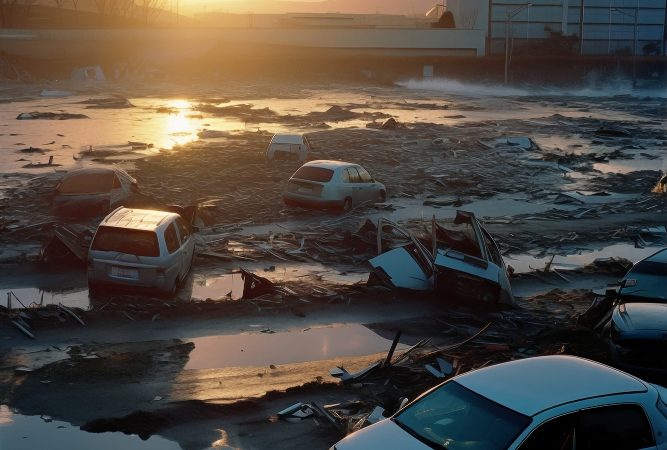Introduction: Come with us while we explore into the deep effect of environmental emergencies on our daily being. Within this piece, we investigate the results of weather calamities. The outcomes extend from hazards to health and safety to disturbances in the economy and society. Obtain understanding concerning the critical demand to implement steps. Comprehend the
Introduction:
Come with us while we explore into the deep effect of environmental emergencies on our daily being. Within this piece, we investigate the results of weather calamities. The outcomes extend from hazards to health and safety to disturbances in the economy and society. Obtain understanding concerning the critical demand to implement steps. Comprehend the significance of tenacity and readiness. Acknowledge the importance of green initiatives in tackling climate emergencies and ensuring a lasting future.
The Consequences of Climate Disasters:
Weather-related calamities have significant impacts that influence our everyday existence in diverse manners. These present hazards to our physical condition and welfare. The dangers might cause physical harm, diseases, and even fatalities. Interruptions to infrastructure and vital services, such as electricity outages, broken roads, and interrupted water supplies, affect our capability to engage in our daily actions. Nevertheless, by carefully planning and readiness, it is possible to reduce the effects and guarantee a smoother conversion in comparable conditions. Financial repercussions consist of harm to properties, reduction in employment opportunities, and higher financial strains. Societal disturbances, relocation, and collective disturbance also have an impact in our everyday life.
Health and Safety Risks:
Extreme weather events cause substantial threats to our health and safety in our everyday existence. Intense heatwaves often lead to thermal illnesses and mortalities. In the meantime, forest fires lead to deteriorated air conditions, lung disorders, and traumatic injuries. Severe weather and inundation carry potential with the possibility of getting hurt and suffocation. Moreover, they may contribute to the dissemination of diseases transmitted through water. These medical and security hazards emphasize the requirement for readiness, preemptive alert systems, and efficient crisis response actions.
Economic and Social Disruptions:
Environmental catastrophes bring about major monetary and community effects. Asset destruction caused by hurricanes, floods, and storms could cause major financial setbacks having consequences for individuals, businesses, and communities. Consequently, it is essential for people and companies to acquire suitable insurance to secure their belongings if a natural tragedy occurs. Interrupted distribution networks, farming setbacks, and higher policy fees worsen financial burdens. In terms of society, environmental catastrophes have the potential to cause eviction, human migrations, and the widening of social disparities. At-risk communities frequently experience the major burden due to these disturbances, intensifying pre-existing gaps.
The Urgent Need for Action:
The effect of weather-related emergencies on our regular life accentuates the immediate necessity for intervention. Addressing climate change by decreasing greenhouse gas emissions, shifting to renewable energy, and advocating for sustainable behaviors is vital to halt further growth of natural disaster occurrences. Nevertheless, it needs joint effort and global coordination to accomplish noteworthy and enduring outcomes. Moreover, supporting climate adaptation and emergency readiness measures is crucial to improve our capability to withstand and bounce back from these occurrences. It is vital to acknowledge the significance of preemptive steps in strengthening our resilience. Initiative by every society, and governmental approaches are required to tackle this worldwide problem.
Building Resilience and Preparedness:
Developing resilience and readiness is vital for lessening the influence of environmental calamities. This includes taking actions for example, upgrading facilities to withstand severe climatic conditions. Building resilient preliminary notification systems and boosting emergency handling capacities. Environmentally friendly land and water conservation methods, combined with ecosystem regeneration, can lessen the consequences of climate emergencies. Nevertheless, it is crucial to acknowledge that such actions alone might not be adequate to completely reduce the impacts of such occurrences. Moreover, increasing awareness, encouraging education, and nurturing community resilience are necessary for guaranteeing preparedness and effective response. The actions are essential by providing individuals and communities with with information and resources required for efficient response and recovery from emergencies and disasters.
Embracing Sustainable Practices:
Environmentally friendly methods play a vital role when dealing with disruptive climate events. Implementing energy-saving methods, decreasing waste, and supporting green energy options helps in lowering greenhouse gas emissions. This, as a result, can support lessen climate change. Environmentally friendly land utilization, Preservation of water resources, and Mindful buying further aid in building resilience to climate-related disasters. Through adopting eco-friendly methods in our everyday routines, we contribute to the shared initiative to combat climate crisis and safeguard our tomorrow.
Conclusion:
The effect of natural calamities in our everyday lives is deep and necessitates our mindfulness. Concerning health and possible hazards to monetary and community disturbances. These occurrences bring attention to the critical requirement for intervention. Developing resilience, readiness, and promoting sustainable practices are vital in mitigating the effects of climate disasters and guaranteeing a sustainable future. Nevertheless, it necessitates joint efforts from people, societies, and ruling bodies to attain these targets. By collaborating at personal, communal, and governmental levels, we can form a planet that is more adaptable and environmentally friendly. That will guarantee the welfare and protection of now and future offspring. Allow us act right now to tackle climate crisis and safeguard our daily survival.






















Leave a Comment
Your email address will not be published. Required fields are marked with *